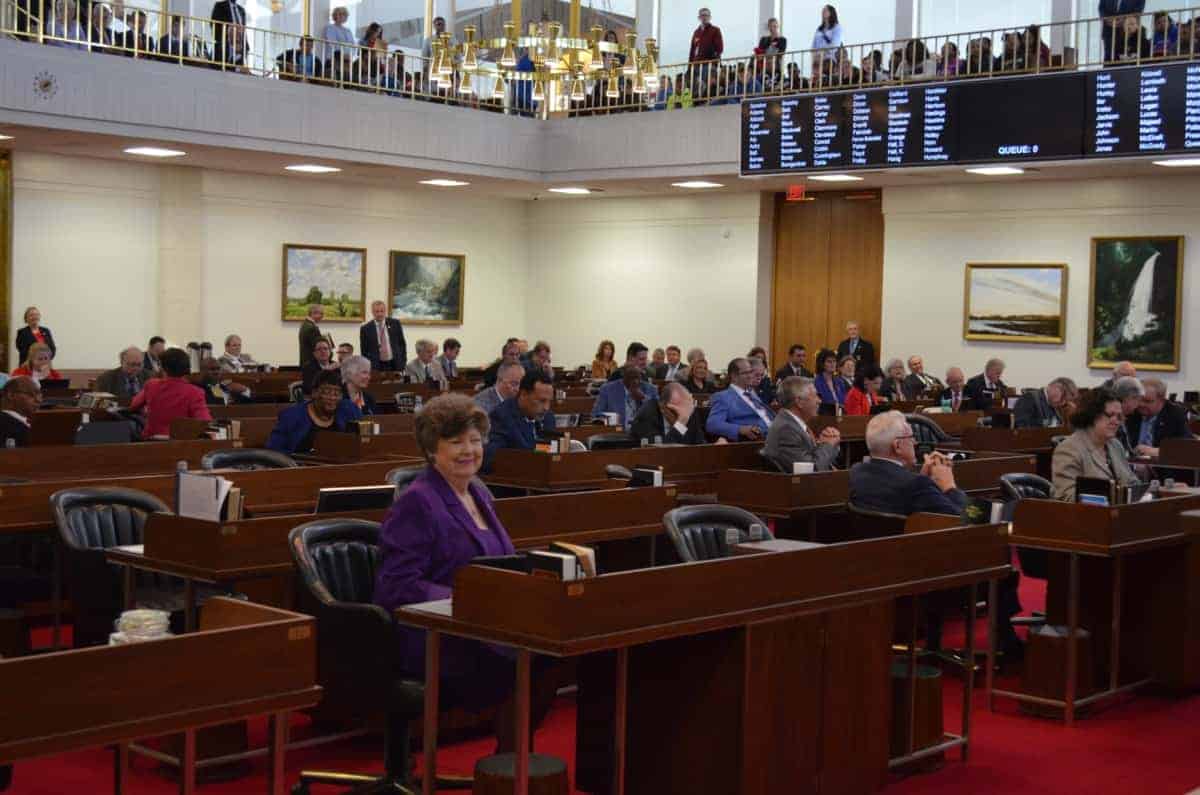The full House voted in favor of a slew of education bills today, including two that would change the state’s school performance grades in mutually exclusive ways. Lawmakers have previously characterized the two school performance grades bills as options for the Senate to consider, though they both can’t ultimately become law.
House Bill 354 would change the makeup of the school performance grades. Currently, they are comprised of a formula that includes 80 percent academic achievement and 20 percent academic growth. The bill would change that formula to a 50-50 split.
House Bill 266, on the other hand, would modify the school performance grades so that each school gets a grade for both academic achievement and academic growth.
Both of these ideas are ones that have been considered before over the years. The school performance grade formula has been a subject of steady debate in the General Assembly, with some lawmakers advocating for academic growth playing a bigger part in the grades because they say it is a more effective indicator of how well teachers are doing their jobs. Growth is essentially how much a student learns in a year, whereas academic performance measures how well students do on standardized tests. Proponents of keeping academic performance front and center say it measures whether students are where the state wants them to be education-wise, so it’s important to keep the emphasis on it.
House Bill 266 passed 105-5, with many representatives speaking in support of the plan. Rep. Dennis Riddell, R-Alamance, said that the school performance grades, as they are now, “grossly” underweight academic growth.
“What this bill seeks to do is take the existing information that’s here … and put them out as two standalone grades,” he said.
He went on to say that giving two separate grades simply gives parents more information.
Rep. Raymond Smith, D-Wayne, who was former vice chairman of the Board of Education in his county, said that he hopes the House will, at some point, go further. He said the school performance grades are too simplistic and give the impression that if a school is an “F” school, that means all the students in the school are doing poorly.
“This is a major step forward and I do support the bill,” he said. “But I want to see us go further.”
House Bill 354 passed with very little debate. Rep. Craig Horn, R-Union, a sponsor of the bill, said that he thought it was important to level the playing field when it comes to the divide between academic performance and growth.
“One could easily say that growth is the very definition of education. If we’re going to continue the single grade on the front of the school, that single grade should be based on 50 percent performance and 50 percent on growth,” he said.
The bill passed 105-6.
Other bills taken up by the House include House Bill 362, which would maintain the 15-point grade scale for the school performance grades. Currently, the grades are on a 15-point scale where 85-100 is an A and so on down the line. That is set to change to a 10-point scale next year and could mean an influx of newly-labeled low-performing schools. At the last release of the school performance grades, there were 476 low performing schools — a number that could rise considerably if the grade scale changed. Horn said moving to a 10-point scale could lower the grades of 60 percent of state schools.
“It’s been 15 points since the very beginning. That’s been the practice in the state … this bill simply now codifies now that it’s a 15-point break,” he said.
With so much talk about school performance grades, one legislator, Rep. Michael Speciale, R-Craven, asked for clarification as to whether this bill was like the previous two.
“I’m starting to get confused now. This is the third bill with grades on it,” he said.
The House also tackled the subject of calendar flexibility, approving House Bill 79, which would allow districts to align their school calendars with that of community colleges, so that students can take advantage of classes at the colleges and better move from high school to the institutions.
While there was quite a bit of debate on the floor about the impact of changing school calendars on tourism and family vacations, the bill passed 100 to 10 and moves on to the Senate.
Rep. Pat McElraft, R-Carteret, started by saying that the argument that calendar flexibility is simply a matter of preserving tourism is wrong.
“A lot of you think it started with the tourism folks,” she said. “But it actually started with parents.”
She said that the origin of the current school calendar was pushback from parents who weren’t able to enjoy summer vacations with their families.
She said she may be OK with a different start and stop date for the school year, but thinks those dates need to be consistent statewide. She also touched on the impacts to tourism, including the lack of students to fill summer jobs. A number of other legislators also argued that messing with school calendars could hurt summer tourism.
“We’re going to be short of people to work those jobs if we go back to a summer that shrinks,” McElraft said.
Current law says that students must be in school for a minimum of 185 days a year or 1,025 hours of instruction. It also says that schools can’t start earlier than the Monday closest to Aug. 26, and they can’t end later than the Friday closest to June 11.
The House also approved House Bill 295, which would prohibit corporal punishment in schools. It passed 94-16. All school districts in the state currently ban corporal punishment.



